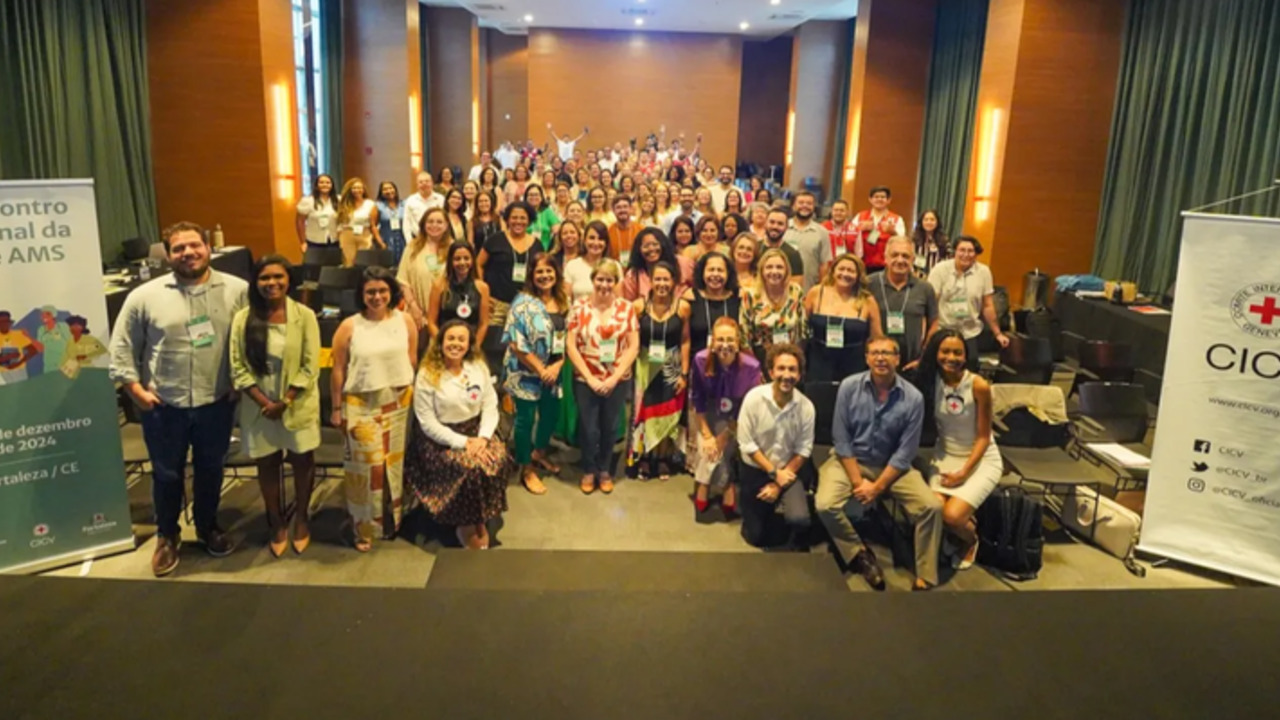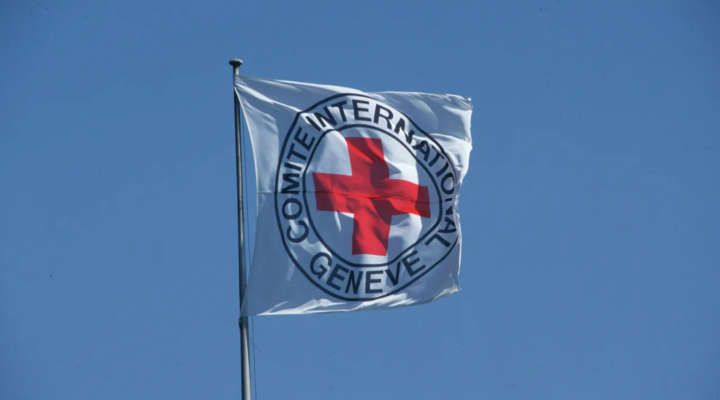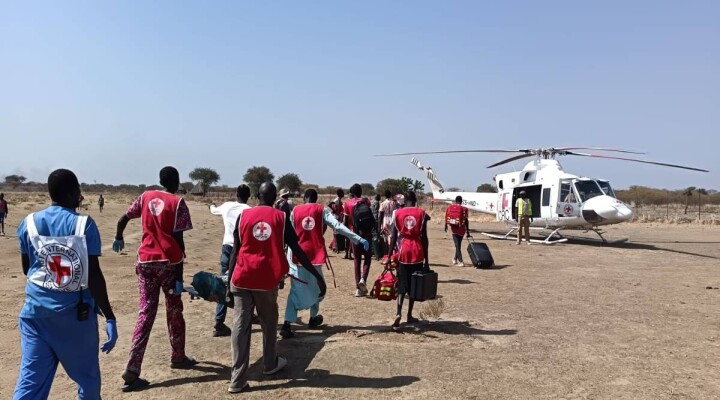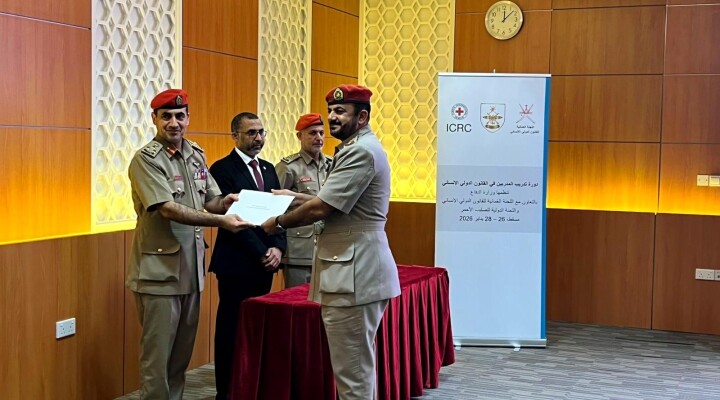Brazil: Members of Safer Access network discuss ways to reduce impact of armed violence
Fortaleza (Ceará state) – Educators, health personnel and social workers from Duque de Caxias, Fortaleza, Florianópolis, Porto Alegre, Río de Janeiro, São Paulo, Salvador and Vila Velha met in Fortaleza on 3 and 4 December 2024 for the Ninth National Meeting of the Safer Access Network for Essential Public Services. The event was organized by the ICRC with the support of Alcaldía City Council.
The theme was “intersectorality in the building of sustainable Safer Access” and the event brought together some 130 government agencies and practitioners for discussion of how to promote intersectoral activity on Safer Access as a strategy for mitigating the consequences of armed violence. The Escola de Dança Urbana da Rede Cuca (Cuca Network Urban Dance School) gave a performance at the opening ceremony.
The Safer Access framework aims to promote a safe environment and to strengthen the resilience of public service personnel working in areas affected by armed violence, to ensure that people can exercise their right to receive services in such areas. The programme has been implemented by some 48,000 staff, in 1,935 units, working in eight Brazilian cities. As a result, risk management has become increasingly aligned with local situations.
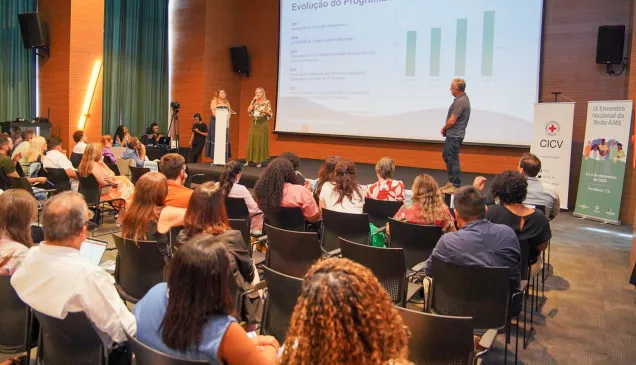
Staff from Duque de Caxias talk about their experiences with Safer Access.
Karen Cerqueira coordinates the Safer Access Programme for Essential Public Services of the ICRC delegation covering Argentina, Brasil, Chile, Paraguay and Uruguay. She explained the importance of the support groups, which contribute to the management implementation process and the intersectoral use of techniques and tools. “Our units need a common understanding of what it means to work in areas affected by armed violence,” she explains. “They need to enhance the effectiveness of safer access in each of the neighbourhoods that implement it, based on their knowledge of the communities in which they operate.”
According to Cerqueira, one of the major changes to the programme in 2024 has been the establishing of a facilitators’ network, which provides a forum for discussing how to enhance this growth process, create a risk-management culture and build a culture of care for service providers and users in situations involving risk. The network also provides training for other personnel in Brazil. Cerqueira announced that the name of the programme would be shortened from Acesso Mais Seguro para Serviços Públicos Essenciais (Safer Access for Essential Public Services) to simply Acceso from the second half of 2025.
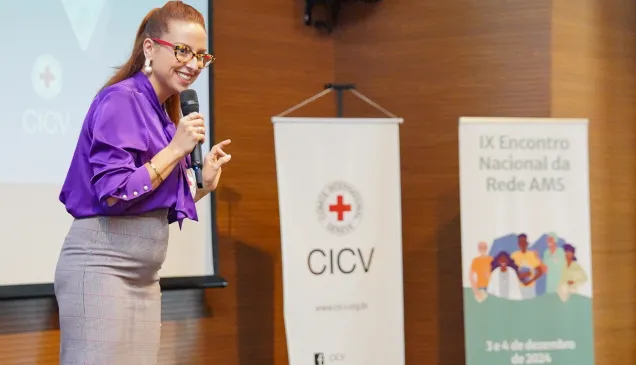
Karen Cerqueira explains the forthcoming changes to the programme, which will become Acceso in the second half of 2025.
Activities in Fortaleza
Fortaleza is one of the cities implementing Safer Access. Deputy mayor José Helcio Batista underlined the importance of partnership with the ICRC in supporting the continuity of public services in the capital of Ceará state. “This is very important work, based on centuries of experience. There are conflicts in the majority of cities around the world; these generate processes of violence and interfere with service provision. Armed groups are operating here, but experience has enabled us to boost staff security.”
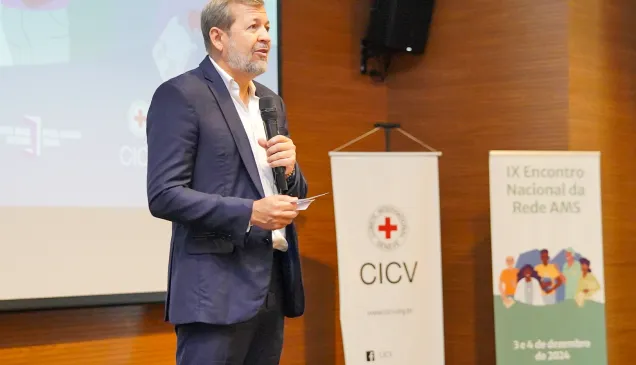
The deputy mayor of Fortaleza underlines the importance of partnership with the ICRC.
Mario Guttilla, head of the ICRC’s Fortaleza office, welcomed the holding of this event in the city. He said that the 2022 Safer Access Law had been an important step towards ensuring the sustainability of this public policy. Daniel Muñoz-Rojas, head of operations at the ICRC Regional Delegation, mentioned the participation of guests from Costa Rica, Ecuador, Honduras and Mexico. “People in several countries have been knocking at the ICRC’s door, because armed violence has been knocking at theirs. We cannot ignore these contexts, in which people are calling for the implementation of Safer Access where armed violence is having a dramatic effect on essential public services.”
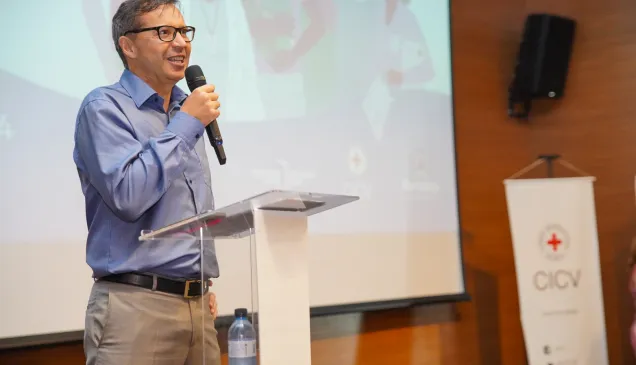
Daniel Muñoz-Rojas mentioned the participation of international guests.
Intersectoriality
Professor and doctor of sociology César Barreira gave a talk on the first day of the event about the role of intersectorality in developing successful public policy, in which he also mentioned the analysis of risk situations and the practice of care. Barreira explained that we are living in a world that requires us all to cooperate more closely and to share resources, goals, objectives and plans. “One could say that we have normalized the absence of access to public services in areas affected by vulnerability and armed violence. It is in this context the the culture of risk context analysis, the Safer Access programme, crisis management, stress management and networking all come into play.” He felt we should understand today’s violence, with its new dynamic of crime, as a form of systemic violence.
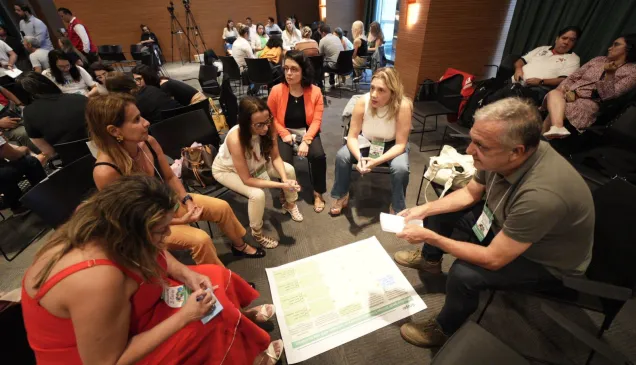
Participants work on intersectorality in their areas.
The focus of the second day was group work on intersectorality in the various areas, followed by a discussion on ways of creating an intersectoral Safer Access policy involving personnel from two cities facing different situations: Fortaleza and Salvador. Fortaleza has been implementing Safer Access since 2018, while Salvador is the most recent city to join the programme and is currently working on a decree to implement it, with a view to drafting new legislation. “The law is a natural route to take, as this is one of the City Council’s public policies”, explained Reynaldo Costa Neto, Salvador’s head of governance.
Joana Nogueira is the executive coordinator of Fortaleza’s Institutional Affairs Committee. She explained that the Committee was already implementing cross-cutting policies and and is thinking strategically so that the Safer Access programme will continue regardless of changes in management. “This methodology keeps our staff safe, teaches them how to act in cases of violence and how to give support, and provides them with reassurance, reducing the percentage of personnel unwilling to work in certain areas because of violence. That means better services for our citizens, because instead of suspending education, closing a school, suspending a health service or closing a health centre, we can keep facilities open and services running.”
Nogueira believes that holding the event in Fortaleza brings Safer Access closer to the situation on the ground and increases the participation of those involved in the programme, promoting dialogue between cities. In addition to sharing their experiences and presenting success stories from cities and states, the participants watched the ICRC film É Mais do que se Vê (There’s more than meets the eye), which was followed by a discussion on the effects of armed violence. They also listened to a talk entitled Violência no Grande Bom Jardim sob a perspectiva de estudantes de escolas públicas de ensino médio: vitimização, percepções sobre segurança e repercussões educacionais (Violence in Grande Bom Jardim from the perspective of public high school students: victimization, perceptions of safety and consequences for education.)
For further information, please contact:
Fabíola Góis, ICRC communication adviser, Brasilia.
+55 (61) 98248 7600, fgois@icrc.org
